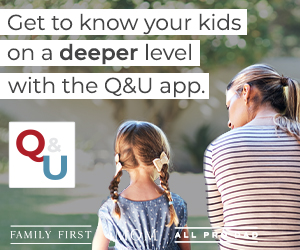Arguing used to terrify me because of my history of unhealthy relationships. Childhood arguments resulted in resentment and passive aggression instead of resolution. For years, I thought healthy relationships meant avoiding conflict at all costs. I laugh now, wondering how I ever thought it was possible to get through life without conflict!
I’m extraordinarily grateful that my husband has carried good habits into our fights. I’m unlearning my previous habits and slowly taking what he and I are learning into my relationships with my friends, family, kids, and colleagues. Conflict can and should produce growth, not death, in relationships, provided both sides fight fair. I’ve learned that winning the battle only to lose the war is no victory at all. Avoid these 5 destructive habits to ensure that you win together.
1. Assuming
I remember a time I was angry at my college boyfriend. My roommate asked, “Does he know how you feel?” “No!” I stormed. “He should know! I shouldn’t have to explain it to him!” Explaining the problem isn’t fun, but is necessary for healthy communication. I shouldn’t assume my loved ones know what I’m thinking or feeling. People aren’t mind readers, and something that’s obvious to me might a complete mystery to someone else.
2. Passive Aggression
Are you in an argument, or aren’t you? Do you have their approval, or don’t you? Passive-aggression can look like backhanded compliments, procrastination, or the silent treatment. Good communication leads to clarity. Deliberately withholding clarity will spell the end of a healthy relationship. Any time you’re struggling with something, bring it to light or it will come out in other ways.
3. Mocking
If you’re tempted to say something sarcastic, roll your eyes, demean, or laugh in contempt, stop and ask yourself why you’re doing it. Is it because you think he deserves it? If so, then fundamental disrespect is your problem and needs to be addressed immediately. Mocking dismisses others and criticizes not just their actions but the core of who they are and is a telltale sign of an unhealthy relationship. As evidenced in Twitter debates, no resolution can be reached without basic respect.[1]
4. Insisting on being right
Entering someone else’s reality is a necessary skill for healthy arguing. Build that pro skill of being able to see the other’s point of view! Often, arguments result from different perceptions of the same situation. He assumed you’d do the dishes. You thought he heard you ask him to do the dishes. Two hours later there are hard feelings. You can build a pedestal: “I told you!” Or, you can build a bridge by accepting perceived culpability and apologizing. Saying, “I’m sorry. I shouldn’t have assumed you heard me ask you,” softens the tension. It shows him that you’ve entered his reality and are sympathetic to it. Plus, apologizing paves the way for his gracious response and return apology.
5. Leaving
It can be difficult to listen when emotions run high. When someone allows me to express myself fully without interrupting or walking away, I feel heard. Do the same for others. One idea for achieving this is to press an imaginary pause button in my head. I press it in order to set aside my emotions for the moment and listen. It’s not denying what I feel; rather, it allows them space to express themselves. Once grievances are aired and no one walks away, then we can work through the deeper issues at hand.
Which of the above was most important for you to hear today?
[1] https://www.gottman.com/blog/the-four-horsemen-recognizing-criticism-contempt-defensiveness-and-stonewalling/








